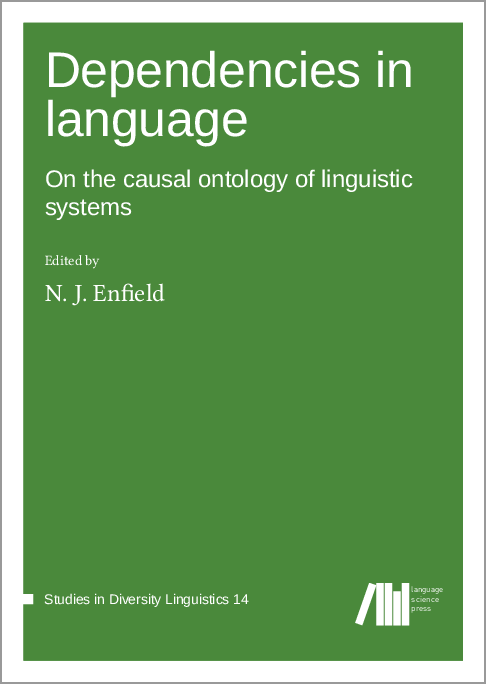We log anonymous usage statistics. Please read the privacy information for details.
Dependencies in language: On the causal ontology of linguistic systems
Synopsis
Dependency is a fundamental concept in the analysis of linguistic systems. The many if-then statements offered in typology and grammar-writing imply a causally real notion of dependency that is central to the claim being made—usually with reference to widely varying timescales and types of processes. But despite the importance of the concept of dependency in our work, its nature is seldom defined or made explicit. This book brings together experts on language, representing descriptive linguistics, language typology, functional/cognitive linguistics, cognitive science, research on gesture and other semiotic systems, developmental psychology, psycholinguistics, and linguistic anthropology to address the following question: What kinds of dependencies exist among language-related systems, and how do we define and explain them in natural, causal terms?
Chapters
-
Dependencies in language
-
Implicational universals and dependencies
-
New approaches to Greenbergian word order dependencies
-
From biology to language change and diversity
-
Language intertwined across multiple timescalesProcessing, acquisition and evolution
-
What comes first in language emergence?
-
Is language development dependent on early communicative development?
-
Dependency and relative determination in language acquisitionThe case of Ku Waru
-
Beyond binary dependencies in language structure
-
Real and spurious correlations involving tonal languages
-
What (else) depends on phonology?
-
Dependencies in phonology: hierarchies and variation
-
Understanding intra-system dependencies
-
Structural and semantic dependencies in word class
-
On the margins of languageIdeophones, interjections and dependencies in linguistic theory




